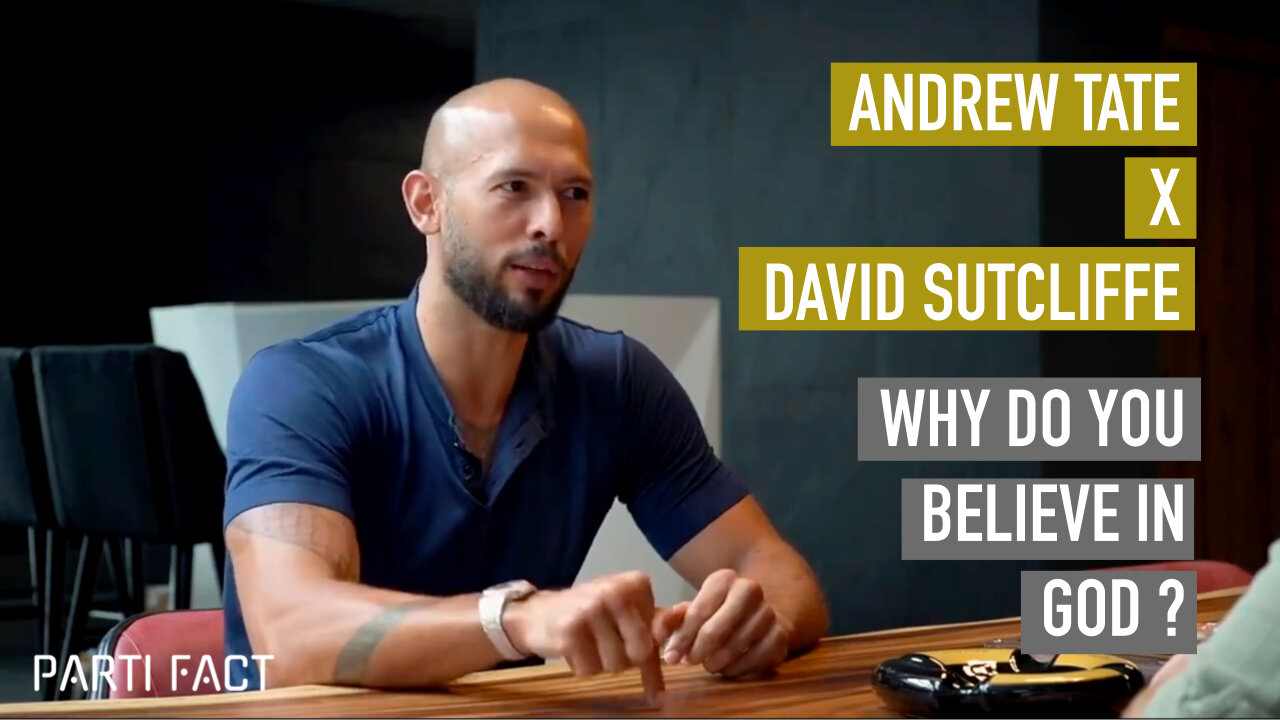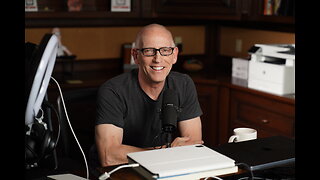Premium Only Content

Why Do You Believe In God? Andrew Tate X David Sutcliffe #andrewtate #relegious #jesus #allah
The concept of God has intrigued and inspired humanity for millennia, transcending cultural, religious, and philosophical boundaries. Whether one is a devout believer, an agnostic seeker, or an atheist skeptic, the idea of a higher power or cosmic force has shaped civilizations, ethics, and worldviews. This essay delves into the multifaceted nature of the concept of God, examining its historical, cultural, philosophical, and theological dimensions.
Historical and Cultural Perspectives
Throughout history, diverse cultures have conceived of God in various forms. Ancient civilizations like the Egyptians, Greeks, and Romans had pantheons of deities representing different aspects of life and nature. In monotheistic traditions, such as Judaism, Christianity, and Islam, God is often envisioned as an all-powerful, omniscient, and benevolent creator. Hinduism embraces a pantheon of deities but also acknowledges the concept of Brahman, an all-encompassing cosmic principle. Indigenous belief systems connect the divine to nature and emphasize harmony with the environment.
These cultural perspectives reveal the human inclination to seek understanding and guidance from a higher source. The concept of God often serves as a moral compass, guiding ethical choices and providing solace in times of uncertainty.
Philosophical Explorations
Philosophers have grappled with the concept of God through rigorous intellectual inquiry. Classical arguments for the existence of God include the cosmological argument, which posits that the universe's existence necessitates a first cause or unmoved mover, and the teleological argument, which asserts that the complexity and order in nature imply a purposeful design.
Conversely, philosophical challenges to the existence of God arise from the problem of evil, questioning how a benevolent and omnipotent God could allow suffering and injustice. Existentialist thinkers like Jean-Paul Sartre explored the idea of a seemingly absent or indifferent God, giving rise to concepts of human freedom and responsibility.
Modern debates continue to explore the compatibility of science and religion, with some advocating for a harmonious coexistence while others see inherent conflicts. The philosophical discourse surrounding God remains a dynamic and thought-provoking arena of inquiry.
Theological Dimensions
Theology, as the systematic study of the divine, plays a pivotal role in shaping religious beliefs and practices. In monotheistic faiths, theologians delve into the nature of God, examining attributes such as omnipotence, omniscience, omnipresence, and transcendence. Theologians also address theodicy, seeking to reconcile the existence of God with the existence of evil and suffering.
Different religious traditions offer unique interpretations of the divine-human relationship. In Christianity, the concept of the Holy Trinity — the Father, Son, and Holy Spirit — illustrates the complexities of divine unity and diversity. Islam emphasizes the oneness of God (Allah) and the importance of submission (Islam) to the divine will. Eastern religions like Buddhism and Taoism offer distinct perspectives, with Buddhism focusing on the path to enlightenment and liberation from suffering.
Personal and Spiritual Significance
The concept of God holds deeply personal and spiritual significance for individuals around the world. For believers, God serves as a source of comfort, guidance, and purpose. Prayer, meditation, and religious rituals provide avenues for connecting with the divine and cultivating a sense of inner peace. The belief in God can foster a sense of community and belonging, uniting people under shared values and moral principles.
Nonetheless, the concept of God is not confined to organized religion. Many individuals identify as spiritual but not religious, finding meaning and transcendence in nature, art, relationships, and personal experiences. Such spirituality often emphasizes inner growth, mindfulness, and interconnectedness.
jordan peterson,joe rogan,jordan b. peterson,jordan b peterson,piers morgan,jordan peterson interview,jordan peterson motivation,jordan peterson 2022,piers morgan jordan peterson full interview,piers morgan peterson,piers morgan uncensored jordan peterson,jordan peterson putin,jordan peterson ukraine,jordan peterson cathy newman,jordan peterson ronaldo,talktv,fox,fox news,jordan peterson full interview with piers morgan,interview,debate,jordan peterson debate,motivational speech for success in life
-
 LIVE
LIVE
LumpyPotatoX2
3 hours agoThirsty Thursday on BOX Day - #RumbleGaming
1,039 watching -
 DVR
DVR
Geeks + Gamers
1 hour agoDisney RATIO'D on Christmas Day | Mufasa Embarrassed By Sonic 3
9631 -
 LIVE
LIVE
Sm0k3m
6 hours agoPlaying games on Rumble
252 watching -
 10:37
10:37
Russell Brand
2 days agoHow is this even allowed?
101K683 -
 1:37:26
1:37:26
Real Coffee With Scott Adams
2 hours agoEpisode 2701 CWSA 12/26/24
26.9K14 -
 2:58:58
2:58:58
Wendy Bell Radio
7 hours ago9 Steps Ahead
51.3K100 -
 LIVE
LIVE
LFA TV
15 hours agoTIME FOR A NEW SPEAKER! | LIVE FROM AMERICA 12.26.24 11am EST
5,253 watching -
 1:40:22
1:40:22
Game On!
13 hours ago $3.86 earnedNFL Thursday Night Football Seahawks at Bears EXPERT Picks!
25.2K9 -
 1:50:54
1:50:54
xBuRnTx
2 hours agoWho's Ready for New Years!
16.3K1 -
 12:09
12:09
Tactical Advisor
14 hours agoSmith & Wesson Shield Plus Carry Comp
12K1